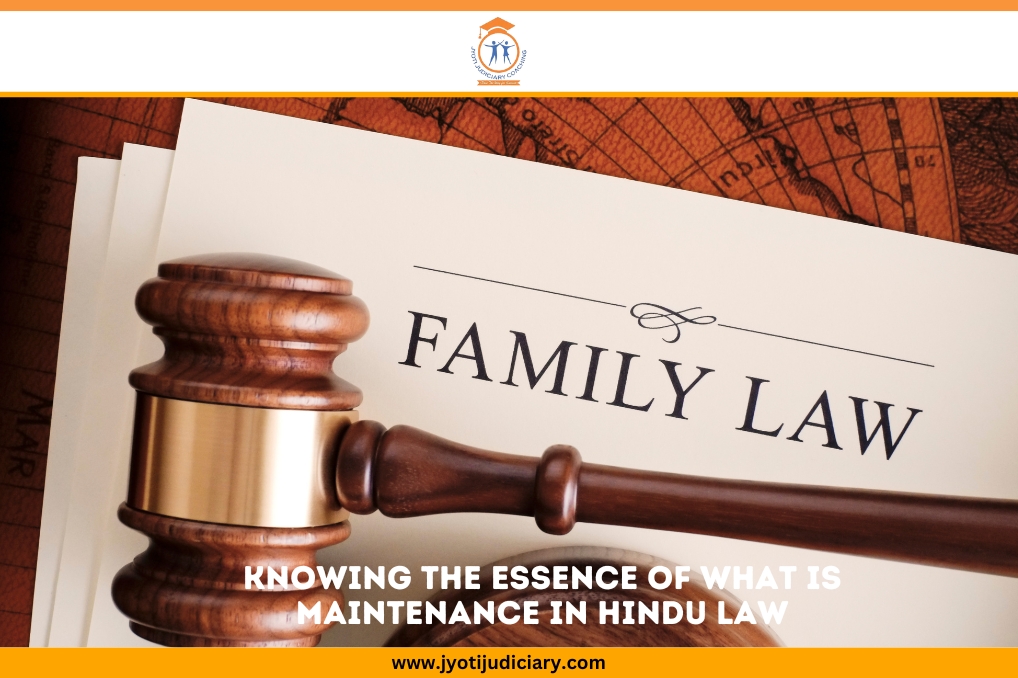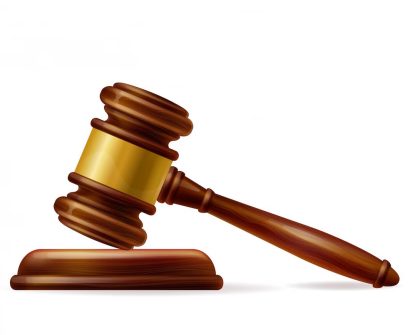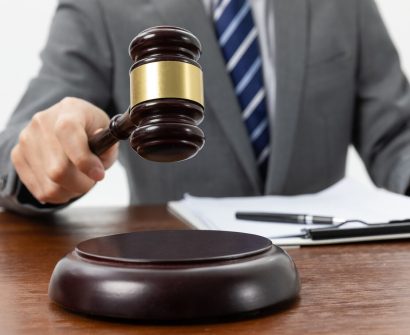
In legal terms, maintenance is the kind of monetary assistance granted to one of the parties in a lawsuit at their request, and only in compliance with an order made by the court having jurisdiction over the case and after a decree in that regard has been executed.
It’s also commonly known as “spousal assistance” or “alimony,” which are additional terms for the husband’s financial support. However, maintenance refers to the payment of expenses or easing the burden of the spouse whose financial status is significantly changed by the divorce decree.
What is Maintenance in Hindu Law?
- The regulations pertaining to maintenance are outlined in the Hindu Adoptions and Maintenance Act, 1956.
- This statute establishes guidelines for the care of a widowed daughter-in-law, her children, parents who are elderly or disabled, and other dependents.
- Maintenance is primarily intended for maintenance to wife who are divorced, elderly parents, small children, and other dependents financially so they can meet their basic necessities for survival.
Maintenance under CRPC: 125 CRPC
If someone has enough money but fails or refuses to care for any of the following people, a magistrate may compel them to provide maintenance for their wife in compliance with section 125 of crpc:
- Unable to maintain oneself, a wife (even a divorced woman who hasn’t gotten married again)
- A young child of theirs, married or not, who is unable to provide for themselves
- Her married daughter until she reaches adulthood if her husband can provide for her;
- His or her mother or father is unable to support themselves;
- His or her adult-aged, legitimate or illegitimate child (not a married daughter); if the child is incapable of providing for herself because of a physical or mental disability or accident.
Maintenance in Hindu Marriage Act
- The term “Permanent Maintenance” refers to the amount of support granted indefinitely after the divorce or separation process has concluded.
- According to section 25 of the Hindu Marriage Act of 1955, the applicant, who can be either the husband or the wife, has the right to maintenance from the spouse for as long as they live or until they are married again. Maintenance payments can be made every month or as a gross amount.
Section 25 of Hindu Marriage Act of 1955: Case Rulings
- In the Ambaram v Reshambai case, the court found that although a lot of women married without knowing about their husbands’ prior marriages, they still had a right to fair treatment and Section 25 maintenance payments. Should an appeal be required, the matter ought to be heard by the legislature.
- The Allahabad High Court held in the Raj Kishore Mishra v Meena Mishra case that a father-in-law cannot be held liable for failing to provide for his daughter-in-law from any coparcenary property he owns but of which she has not received any share.
Section 125 of the Criminal Procedure Code: Case Rulings
- It was determined in the Vijaya Manohar v Kashirao Rajaram case that a daughter, married or single, who possesses the means to assist her parents when they are unable to do so is likewise accountable under Section 125 CrPC, in addition to a son.
- Under Section 125 CrPC, it was decided in the Bakulabai v Gangaram case that a child born from a void marriage between a man and a woman who already has a marriage should be treated as a legitimate kid for maintenance reasons.
It is evident from the court rulings that Indian courts are getting increasingly lenient in their decision-making whenever it comes to maintenance cases. The key question is whether maintenance should be paid to a married partner’s unmarried spouse. Though decisions made within personal laws seem to indicate differently, a legally married woman is the sole individual who can ask for support. Judicial decisions under Section 125 CrPC make this very clear.
The moral and ethical precepts that guide Hindu culture are incorporated into upkeep under Hindu law. As a representation of empathy, openness, and solidarity in society, it guarantees the safety and assistance of the weak inside the family unit. maintenance in Hindu law upholds the values of fairness and equity, which foster the harmonious coexistence of families and society as a whole.
Maintenance in Hindu Law FAQs
1. What are the grounds of maintenance under Hindu law?
Under Section 18 of the Hindu Adoptions and Maintenance Act of 1956, the wife may also file a maintenance claim in case of abandonment, conversion, having another wife, leprosy, cruelty, having a concubine, or other grounds leading to the separation.
2. Who is not eligible for maintenance?
If a wife is living in adultery, refuses to live with her husband for whatever reason, or separates from him with mutual consent, she will not be eligible to get an allowance from her husband under this provision.
3. On what grounds maintenance can be rejected?
The Criminal Procedure Code (CrPC) states in Section 125(4) that a wife isn’t entitled to maintenance if she has engaged in adultery or is an infidel if she is refusing to reside with her husband without a good reason, if the divorce is requested amicably, or if the husband does not have a source of income or the means to pay maintenance.
4. How is maintenance decided?
The right to maintenance is limited by a number of factors, such as:
- the husband and wife’s relationship must be established;
- the wife must be unable to support herself;
- the husband must have adequate resources; and
- it must be demonstrated that the husband has neglected or refused to support the wife.
5. Under what circumstances wife can claim maintenance?
In the event that a divorced woman is not financially independent and cannot make enough money to maintain the same standard of living as she had when she was married, “maintenance” is meant to ensure her continued well-being.
6. Can a second wife claim maintenance?
A woman who has legally wed a second time is only eligible to receive maintenance from that individual if her first marriage has been ruled void or she has received a divorce judgment from her first husband.
7. Who is eligible for maintenance?
A legally married woman who is unable to support herself and has inadequate means of sustenance is qualified under section 125(1).
8. What is the maximum maintenance to the wife?
The Supreme Court of India has established that 25% of the husband’s net monthly earnings should be given to the wife in the event that maintenance rules are being paid in the form of monthly payments.
9. Can a husband refuse maintenance?
According to Section 125 of the Code of Criminal Procedure 1973, any person with sufficient means who refuses or neglects to provide for his wife or legitimate kid may petition the magistrate, who has the authority to impose a monthly maintenance order on the offending party’s wife or child.
10. Is the maintenance case civil or criminal?
These rules deal with civil matters, but their inclusion in the Code is primarily justified by the prompt and cost-effective character of the remedy offered.
11. What is the evidence in the maintenance case?
This can be accomplished by means of witness testimony, documentary evidence, such as marriage licenses or photos, or by proving that a physical union gave birth to a child.
12. Can the court deny maintenance to the wife?
If the wife’s desertion was the reason for the divorce, this cannot be used as an excuse to stop paying her support.
13. Which coaching is best for the judiciary?
Jyoti Judiciary Coaching, the best judiciary coaching in Jaipur is the best coaching for the judiciary.
With the goal of giving students the best coaching available for law entrance exams including the CLAT, AILET, and various other state judiciary exams, Jyoti Judiciary Coaching, India’s Finest educational Platform, was established. Come enroll now with Jyoti Judiciary!
For any latest news, legal topics, judiciary exams notifications, patterns, etc watch Jyoti Judiciary’s YouTube channel for legal videos for any updates at https://youtube.com/@jyotijudiciarycoaching4852?si=2cwubh9d2A9urwJf









